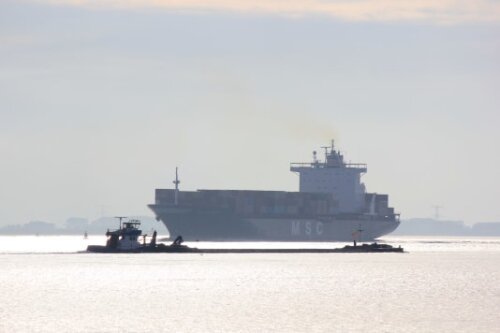Researchers at UAntwerp and TU Delft studied alternative fuels for shipping
Today’s ships mainly run on fossil fuels. Scientists from UAntwerp and TU Delft researched which alternative fuels could be of interest to the shipping sector and especially what impact they would have on sailing speed.
To meet the targets of the 2015 Paris climate agreement, the maritime industry must also change course. The International Maritime Organization (IMO) outlined a strategy to cut greenhouse gas emissions from ships in half by 2050, compared to 2008.
An essential part of the strategy is the use of alternative fuels to meet the emission reduction targets set by the United Nations, but until now there was no consensus on the most appropriate alternative choice of fuel. It was also not clear what the impact of these possible alternative fuels would be on the optimal sailing speed. That is what Edwin van Hassel (UAntwerp), Koos Frouws (TU Delft) and Konstantinos Kouzelis (TU Delft, Greencast.io) wanted to change.
Fewer emissions, less speed?
The researchers searched for the most appropriate alternative fuels to meet the imposed emission reduction targets while providing optimal performance – especially in terms of sailing speed.

Van Hassel: ‘We had to consider several criteria: the price of the alternative fuel is important, because shipping companies obviously want to keep transport costs as low as possible. The performance of fuels is also of great importance: can ships sail faster with a particular fuel, or should that speed be reduced? In our research, we weighed those different factors against each other.’
Three winners
Based on extensive analysis of numerous alternative fuels, the researchers crowned three fuels as the ‘winners’. These include upgraded bio-oil, Fischer-Tropsch diesel (diesel made from natural gas), and liquid bio-methane. That trio could be considered the most promising alternative marine fuels of the future, according to the scientists, if the goal is to become carbon neutral. The researchers also say that the current mainstream fuels – such as heavy fuel oil and liquefied natural gas – will most likely remain dominant if regulations do not change.
Kouzelis: ‘Stricter emission regulations will be implemented, and these will facilitate transitioning to alternative fuels. That transition will have an impact on the entire transport chain. It may result in transport with larger vessels, for example. Further research into all possible aspects and price developments is needed, but our models show that this will lead to a shift towards lower sailing speeds.’
Find out more about the study here.